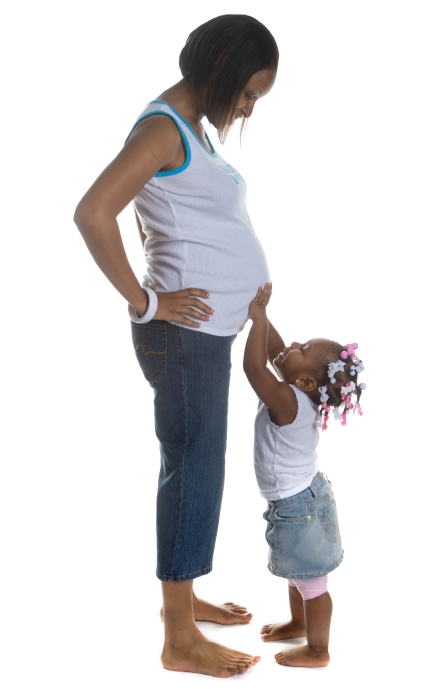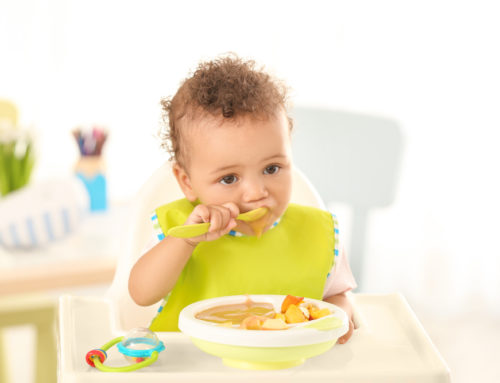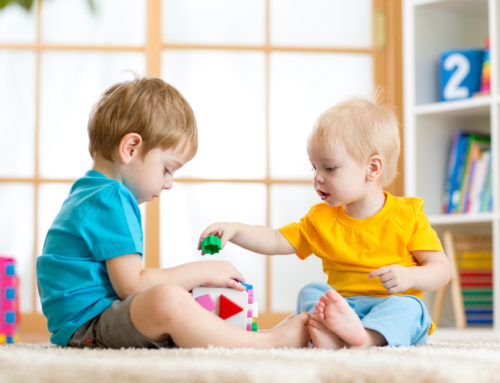When Anna Korshin of Eaton’s Neck, N.Y., was expecting her second child, she made a point of sitting down her 4-year-old daughter and talking about what she had been like as a newborn. “I told her stories of how she would scream for hours at night, how she hated her car seat and how her dad and I gave her the nickname ‘the screaming tomato,'” she recalls. “My hope was that she wouldn’t expect to have a chubby, happy baby right away and that instead, she was prepared…for the reality of a newborn.”
Having your second child may make you feel more prepared on some levels—for instance, knowing how to change a diaper and warm a bottle—than when you were as a first-time mom. But adding another child to the mix can pose its own unique set of challenges. Experts advise how to prepare your firstborn for this new life-altering change and offer ways to ease the transition for the entire family.
The Right Time
While you may be tempted to tell your child the minute you’ve taken your at-home pregnancy test, experts advise otherwise. “Children younger than 15 or 18 months will not understand the concept that Mommy is going to have a new baby,” says Dr. Aaron Kaweblum, a pediatrician. “However, they will imitate adults or older children when they kiss Mommy in the abdomen or when they try to feel the baby moving.”
Ideally, the best time to introduce a new baby is when you are beginning to show or you’re your child begins asking questions. Clinical psychologist Dr. Ivy Margulies suggests introducing the baby when he or she starts to kick (around week 20). “Then the child can feel the baby move and can start to concretize the idea that there really is a baby insider of Mommy’s womb,” she adds.
Cause for Concern
Once you break the happy news to your child, his or her reaction may span a wide range. “Parents may observe everything from disinterest to overly interested,” says Dr. Margulies. And when actual preparations for your baby’s arrival begin—a crib or other baby gear is assembled, or gifts and other baby items start to appear—reality may begin to set in. “This is the time to let the child touch and gently play with the new items,” she advises. “This will decrease resentment and jealousy when the new sibling comes home.”
There are plenty of other ways to help ease the transition for the elder child, long before your baby is born. Dr. Margulies suggests discussing baby name possibilities, reading about babies together or even a fun activity like putting crackers on Mom’s belly and watching the baby kick. Savoring these precious pre-baby moments will help you to enjoy the prospect of your expanding family, while still relishing those times when it was just you and your firstborn.
Get Involved
“There is a tendency in our society to try to ‘make it up’ to an older child,” cautions Dr. Kaweblum. “Parents may feel guilty because their child will no longer be the king/queen of the house.” Maintaining the same level of discipline, while making that child feel part of his baby brother’s or sister’s care is an ideal way to balance your new parenting style.
After you’ve given birth, be sure your child comes to the hospital to officially meet his new sibling. “Try to have Dad or someone else hold the baby when your older child arrives,” recommends Dr. Margulies. “This decreases any jealous feelings.” Then let your firstborn hold your new baby—with some assistance, of course. “A sense of belonging and inclusion of the process promotes loving feelings,” she adds.
Once at home, if your child is younger than 24 months, he or she may act jealous of the new baby. “A toddler will probably act aggressive toward the new baby, so be careful not to leave the baby alone with a young child,” advises Dr. Kaweblum. Older siblings, especially ages 3-4, will most likely want to be involved. “By allowing your child to participate in the baby’s care, the siblings’ relationship will strengthen,” he adds.
Older children can feel included by supplying you with a diaper, blanket or baby toy when asked. And when you’re feeding the baby, Dr. Margulies suggests setting aside a special basket of new toys or other items for an older sibling, one that is put away once mealtime is done.
Finally, don’t forget that a little alone time with your big kid can go a long way. When you can manage a break, spend at least 10 minutes together, you and your firstborn. “This helps to regulate their feelings and have special time with Mom, without the baby,” says Dr. Margulies.




